Computers and the Commercial World
Information and Communications Technology (ICT) is a vital part of the timetable. Every girl spends a minimum of three lessons a week in the dedicated computer suite and they sit the Computer Studies examination for Form 2 and 4. Business Studies is a compulsory timetable subject. Students receive two lessons weekly and the subject will be examined by the National Examination Council of Tanzania (NECTA) and other Internationally Accredited Examination Boards, as desired. Baobab Secondary School believes the future African woman needs high-level commercial skills combined with the ability to use the rapidly changing world of computer technology. This will provide her with the confidence needed to compete in the Tanzania of 2010 and beyond. Information and communications technology is taught for two periods per week and is an examinable subject at form IV. A global communications satellite links BSS to the World Wide Web (https://www.baobab.ac.tz).
International Languages
During the second term, starting July 2007 the school intends to introduce the non-compulsory subject of home economics. The Baobab Secondary School is intensely ambitious, and that ambition extends to all the girls in its care. BSS believes that Tanzania is one of the most beautiful and varied countries on the face of the earth and that the potential of its tourism and hospitality industry is massive. Baobab Secondary School, therefore believes it has a role to play in introducing an academic rigor to the study of Cuisine, Catering, and Hospitality. We will encourage, educate and train the restaurateurs and hoteliers of tomorrow's Tanzania. The school management owns and operates an adjacent farm producing its own needs in organic meat, fruit, and vegetables. This produce provides ingredients for the school refectories, offering a varied menu. It also intended to serve as a natural classroom for the girls to study animal care, horticulture, and nutrition as well as domestic science, hospitality, and catering.
Sport and Learning
In addition to the main curriculum there are broad and stimulating range of sports and other activities the school offers. Currently, the students play netball, football, volleyball and basketball, but there is a need to expand to other key sports essential to develop healthy minds and bodies.
Organic Food
Food served in the school's refectory is by and largely organic. Most vegetable and fruit ingredients are supplied from the neighboring school farm. The menus change daily to ensure a balance of protein, carbohydrates, and essential vitamins.
Environment
BSS cherishes environment conservation in its totality. Natural ecology has been maintained all through from the planning stage to the implementation. Students are taught to respect nature and their surroundings, and engage in landscaping the school. It is intended to make available ,through the computer network, a series of links to websites dealing responsibly with environmental matters especially relevant to Tanzania and to ensure that interactive programmes and documents dealing with environmental issues are available on the internal network. It is also intended to obtain the services of guest lecturers in this field from time to time.
HIV/AIDS and Gender
Women carry the greatest burden of the HIV/AIDS pandemic. They are exposed to infections by pressures from peers and cultural circles who demand sex. They are at risk from unfaithful spouses. They have to take care of home, care of the sick, and must become single parent providers when their spouse passes on. At BSS, care is taken with reproductive biology and prevention of STDs and HIV/AIDS so that women learn to protect themselves and can develop active career paths.
Enrollment Policy
BSS seeks to enrol girls of moderate academic background, eager, willing and ready to learn, and who will respect and adhere to the school rules and policies. Form I entry scores is a minimum of 50% pass mark for the English and Math test. Form II and III joining the school (or transferring in) need to attain at least 50% of four subjects tested (i.e. English, Mathematics, Science/Business and Social Science). The school intake is mainly made up of C and D grades, and outputs are at B and A grades. The BSS has no real desire to imitate the international and long-standing private schools which aim to enrol students with A grades and produce the same A grade. It does, however, intend to add high value to the achievements of every girl; at whatever academic level she is at, and aims to produce examination results, which compare favourably to any other school in the country.
SIGN UP FOR NEWSLETTER
A great way to stay connected with the latest school news, updates and activities going on at Baobab schools.
CONTACT US
Baobab Schools
Mapinga Village - Bagamoyo District.
P. O. Box 35692, Dar es Salaam, Tanzania.
Tel: (255) 0739 611539 / (255) 0715 611538
Tel: (255) 0762 611538
E- Mail: info@baobab.ac.tz / baobabgirls@baobab.ac.tz
